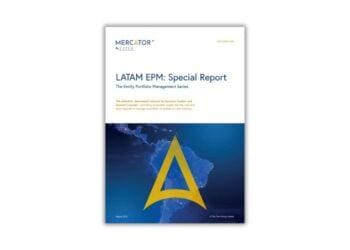In Latin America, informal conversations might be the most effective way to talk to executives about anti-corruption compliance. I have given a lot of presentations in Board rooms, executive suites and at management conferences in the region. Those communications are useful, but I find that I make the most headway moving anti-corruption up a manager’s priority list during less-charged conversations at cocktail parties, in airport lounges or at the occasional birthday gathering.
This makes sense – addressing highly sensitive issues like corruption in formal settings can feel risky and be off-putting. Who wants to publicly acknowledge that one of their peers might be paying bribes? Casual settings are more conducive to sensitive, one-on-one conversations in Latin America and elsewhere.
But how do you “sell” anti-corruption compliance in an informal conversation? How do you make an effective “elevator pitch” for more anti-corruption efforts? Here are five compelling arguments to consider:
Compliance is a basic business standard. For companies doing international business, anti-corruption compliance is no longer an option – it is a basic requirement. In today’s global marketplace, executives should anticipate frequent questions about their company’s anti-corruption compliance efforts from various sources, including joint venture partners, customers, banks, insurance companies and other contacts in the market. The more that a company can show responsible practices, the more secure it will be in the eyes of a foreign investor or partner.
The FCPA has broad extraterritorial reach. Many foreigners might not realize that foreign companies and executives can face serious sanctions in the United States. The extraterritorial reach of the FCPA can be hard for foreign executives to believe. But U.S. authorities regularly apply the law to non-U.S. companies and individuals. Case studies are compelling evidence, and there is no shortage of regional examples. One can point to the current FCPA woes of Brazil’s Embraer or last year’s arrest in the United States of the Vice President of Finance at Venezuela’s Banco de Desarrollo Económico y Social for FCPA-related violations . And U.S. law enforcement isn’t the only game in town – the UK Bribery Act’s Corporate Offense has jurisdictional elements that are arguably even broader, extending to the corrupt acts of companies with ongoing operations in the UK, even if those acts have nothing to do with the United Kingdom.
Potential sanctions are severe. FCPA penalties can be massive. The recent stream of blockbuster settlements includes Total (US$398 million), Alcoa (US$384 million), Weatherford (US$153 million), Hewlett-Packard (US$108 million) and Avon (likely US$135 million). The fines are often just the beginning, as many enforcement actions also involve the appointment of monitors, jail time for executives, shareholder derivative lawsuits and damaged reputations. Compliance programs will hopefully stop FCPA violations, but even if they do not, they can go a long way toward reducing sanctions.
Legal costs can be just as dire. The costs of a government investigation are also considerable – sometimes more than the penalty itself. For example, while Stryker recently paid US$13.2 million to settle an FCPA action with the SEC, it spent a reported US$75 million on the investigation. [FCPAméricas has previously described the reasons by FCPA investigations can be so expensive.] In the event of a government investigation, these costs are greatly mitigated for companies that already have compliance infrastructure in place.
FCPA violations are local law violations. While the enforcement of anti-corruption laws at the local level in Latin America has not historically been consistent, common or feared, those realities might be changing. In the 2012 Latin America Corruption Survey, only 28 percent of respondents believed that anti-corruption laws were effective in the country where they work. But 28 percent was an improvement over the 2008 survey, when only 18 percent perceived local laws to be effective. And in countries like Brazil, Chile, Colombia, Mexico and Peru, there have been important enhancements to local laws underway over the last few years. In addition to new laws, some Latin American countries are showing a greater interest in establishing serious enforcement regimes. Since many of these legal frameworks offer companies credit for anti-corruption compliance programs, investing in compliance allows companies to stay ahead of the curve.



 Matteson Ellis serves as Special Counsel to the FCPA and International Anti-Corruption practice group of Miller & Chevalier in Washington, DC. He is also founder and principal of Matteson Ellis Law PLLC, a law firm focusing on FCPA compliance and enforcement. He has extensive experience in a broad range of international anti-corruption areas. Previously, he worked with the anti-corruption and anti-fraud investigations and sanctions proceedings unit at The World Bank.
Mr. Ellis has helped build compliance programs associated with some of the largest FCPA settlements to date; performed internal investigations in more than 20 countries throughout the Americas, Asia, Europe and Africa considered “high corruption risk” by international monitoring organizations; investigated fraud and corruption and supported administrative sanctions and debarment proceedings for The World Bank and The Inter-American Development Bank; and is fluent in Spanish and Portuguese.
Mr. Ellis focuses particularly on the Americas, having spent several years in the region working for a Fortune 50 multinational corporation and a government ethics watchdog group. He regularly speaks on corruption matters throughout the region and is editor of the FCPAméricas Blog.
He has worked with every facet of FCPA enforcement and compliance, including legal analysis, internal investigations, third party due diligence, transactional due diligence, anti-corruption policy drafting, compliance training, compliance audits, corruption risk assessments, voluntary disclosures to the U.S. government and resolutions with the U.S. government. He has conducted anti-corruption enforcement and compliance work in the following sectors: agriculture, construction, defense, energy/oil and gas, engineering, financial services, medical devices, mining, pharmaceuticals, gaming, roads/infrastructure and technology.
Mr. Ellis received his law degree, cum laude, from Georgetown University Law Center, his masters in foreign affairs from Georgetown’s School of Foreign Service, and his B.A. from Dartmouth College. He co-founded and serves as chairman of the board of
Matteson Ellis serves as Special Counsel to the FCPA and International Anti-Corruption practice group of Miller & Chevalier in Washington, DC. He is also founder and principal of Matteson Ellis Law PLLC, a law firm focusing on FCPA compliance and enforcement. He has extensive experience in a broad range of international anti-corruption areas. Previously, he worked with the anti-corruption and anti-fraud investigations and sanctions proceedings unit at The World Bank.
Mr. Ellis has helped build compliance programs associated with some of the largest FCPA settlements to date; performed internal investigations in more than 20 countries throughout the Americas, Asia, Europe and Africa considered “high corruption risk” by international monitoring organizations; investigated fraud and corruption and supported administrative sanctions and debarment proceedings for The World Bank and The Inter-American Development Bank; and is fluent in Spanish and Portuguese.
Mr. Ellis focuses particularly on the Americas, having spent several years in the region working for a Fortune 50 multinational corporation and a government ethics watchdog group. He regularly speaks on corruption matters throughout the region and is editor of the FCPAméricas Blog.
He has worked with every facet of FCPA enforcement and compliance, including legal analysis, internal investigations, third party due diligence, transactional due diligence, anti-corruption policy drafting, compliance training, compliance audits, corruption risk assessments, voluntary disclosures to the U.S. government and resolutions with the U.S. government. He has conducted anti-corruption enforcement and compliance work in the following sectors: agriculture, construction, defense, energy/oil and gas, engineering, financial services, medical devices, mining, pharmaceuticals, gaming, roads/infrastructure and technology.
Mr. Ellis received his law degree, cum laude, from Georgetown University Law Center, his masters in foreign affairs from Georgetown’s School of Foreign Service, and his B.A. from Dartmouth College. He co-founded and serves as chairman of the board of 





